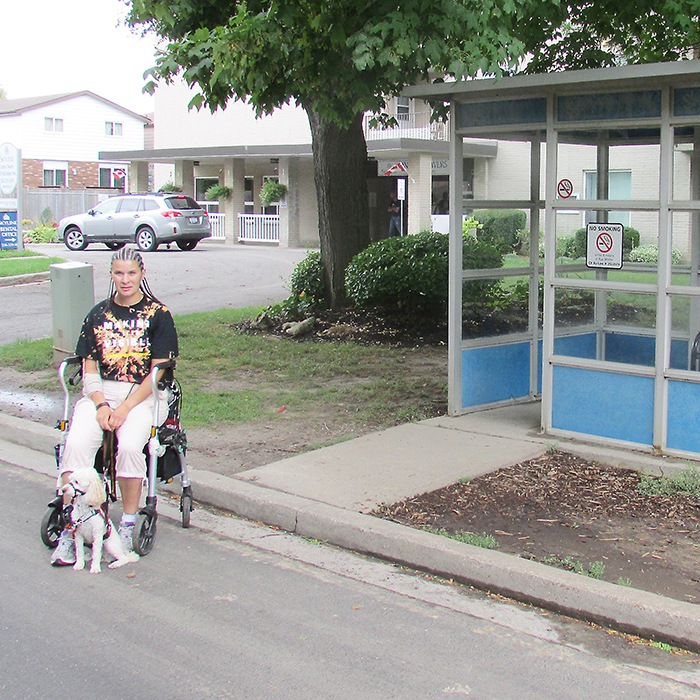
Chatham-Kent does have plans for upgrading some of its more inaccessible transit shelters, but for Patricia Wright, that day can’t come soon enough.
Wright, who uses a walker for mobility, says she’s often forced to sit in the street waiting for a bus since the shelter nearest her home is inaccessible.
“I use the one on McFarlane Avenue but there isn’t any curb cut or any sidewalk near it,” she said. “I can’t lift my walker up over the curb so I have to sit on the street out front.”
Chris Thibert, manager of infrastructure services with Chatham-Kent, says the municipality is aware of the problem with some shelters and is moving to rectify it within its budget.
“We do recognize that there are a significant amount of older shelters still in use that may not meet accessibility needs. To date, we have identified five older shelters that have accessibility concerns including the one on McFarlane Avenue,” he noted in an email to the Voice.
Thibert said there are 29 bus shelters in Chatham, of which nine have been newly installed or upgraded within the last five years.
He said two new shelters will be installed this fall; one at Park Avenue East at Park Street, at the New Beginnings Club for those coping with a medical stroke or acquired brain injury, and the second on Queen Street at Via Rail Station.
According to Thibert, accessibility is a key factor when determining shelter location, noting that “all of our newly installed shelters are either adjacent to a sidewalk and/or have sufficient access to a paved or concrete surface without any steps or changes in elevation.”
He said a variety of factors are involved in shelter replacement including requests, demand and the ability to meet criteria including available property and priority ranking.
He said the McFarlane Avenue shelter has been identified as an accessibility concern and will be one of a number to be addressed in the spring of 2017.
“I do believe it’s an issue because it’s not the only stop,” Wright said. “There are multiple stops like this. We have these wonderfully accessible buses
specially ordered for us but if we can’t get on them, we aren’t getting the benefit.”






